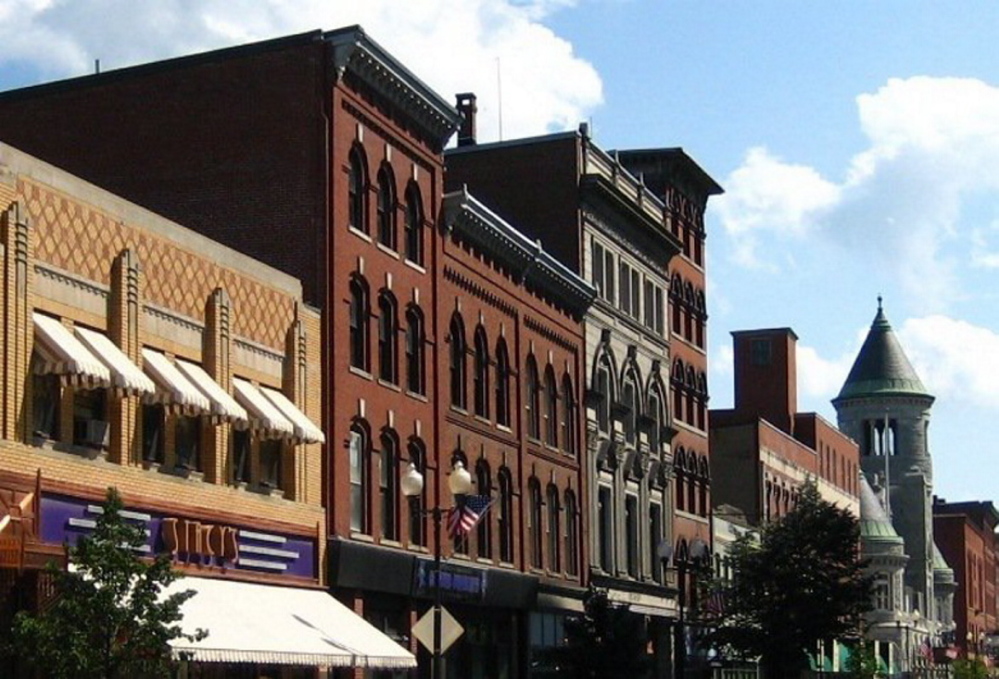AUGUSTA — Downtown merchants and workers say they’ve been attacked walking home, had customers’ lives threatened by “street people,” witnessed vagrants smoking synthetic chemicals and scaring attendees of waterfront concerts, and that, as a result, people are becoming hesitant to spend time downtown.
And they asked city councilors Thursday what the city can do to help.
Helena Gagliano-McFarland, owner of Gagliano’s Italian Bistro downtown, said her husband was attacked while walking the short distance home after work, and his nose was broken and will require reconstructive surgery. She said relatives visiting from Italy also were attacked downtown.
She and Darren Ripley, coordinator of the Maine Alliance for Addiction Recovery, who works in the Olde Federal Building downtown, said they’ve witnessed what they believe to be prostitution downtown, as well as other forms of what they called disgusting behavior.
“It’s sad someone has to be too scared to walk home for fear of being attacked,” Gagliano-McFarland said. “Our question is, is there something that can be done? Is the police force able to do something to try to stop this?”
Mayor William Stokes and merchants said the problem has become more visible as the city’s downtown is revitalized, attracting more people to shop, work and live there.
Police Chief Robert Gregoire said police can’t be downtown all the time, as they also patrol other parts of the city, and funding is scarce. He said he has advocated for years for funding to increase community policing.
Gregoire said most troublemakers are people with substance-abuse problems.
Stokes said there will be a conversation about having a greater police presence downtown, but he warned that significantly more patrols could require more tax dollars to fund them.
Ripley said there is a group of people who smoke synthetic chemicals, starting early in the morning and continuing all day, at the gazebo on the city’s west side waterfront.
He said at least once a week he sees an ambulance go there to pick up people because of their reactions to drug use.
He said daytime is more dangerous than the night, and he’s watched as fewer people who don’t cause trouble spend time downtown, for fear of being assaulted or yelled at.
“Women in my building are scared,” he said. “One woman works the same hours I do, because she knows I can get her out of there safely. She’s ready to take her business out of the downtown, and that is not what we want.”
Ashley Shawley, manager of KeyBank’s downtown branch, said the problem has developed largely over the last year and a half. She said people have defecated and urinated in the bank’s lobby, and the first thing she does most mornings is put on rubber gloves to pick up trash left in the nearby courtyard.
City Manager William Bridgeo said possibilities to improve behavior downtown could include installing security cameras and increasing police patrols.
Some activities that prompt complaints, such as loitering and panhandling, may be bothersome to some, but they aren’t illegal, Bridgeo said. The city needs to be safe while not infringing on people’s constitutional rights, he said.
Steve Pecukonis, downtown manager and executive director of the Augusta Downtown Alliance, said he has heard from merchants who observe what they believe to be illegal drug transactions, panhandling and other behaviors they fear could prevent people from coming downtown.
While the problem is much smaller than what happens in large cities, he said, it does affect “what people say and think about downtown Augusta.”
Early this year, the city had four security cameras installed downtown, at a cost of about $6,500, focused on the Commercial Street area, which runs above and parallel to Water Street, after downtown landlords said some of their tenants’ cars had been broken into while parked overnight in the area.
Bridgeo said the cameras have not yet captured video of a crime occurring. He said the cameras are not normally monitored, but the video would be reviewed if police receive a complaint about something occurring in that area.
Bridgeo said Thursday’s discussion would be the start of the council and city staff’s efforts to address the problem.
Councilor Patrick Paradis suggested taking funds from the city’s contingency account to pay for increased police patrols this summer.
“It’d give some short-term action while we work on a long-term solution,” he said.
Bridgeo said he could meet with Gregoire to prepare an estimate of the proposal and report back to councilors at their next meeting.
Send questions/comments to the editors.




Success. Please wait for the page to reload. If the page does not reload within 5 seconds, please refresh the page.
Enter your email and password to access comments.
Hi, to comment on stories you must . This profile is in addition to your subscription and website login.
Already have a commenting profile? .
Invalid username/password.
Please check your email to confirm and complete your registration.
Only subscribers are eligible to post comments. Please subscribe or login first for digital access. Here’s why.
Use the form below to reset your password. When you've submitted your account email, we will send an email with a reset code.